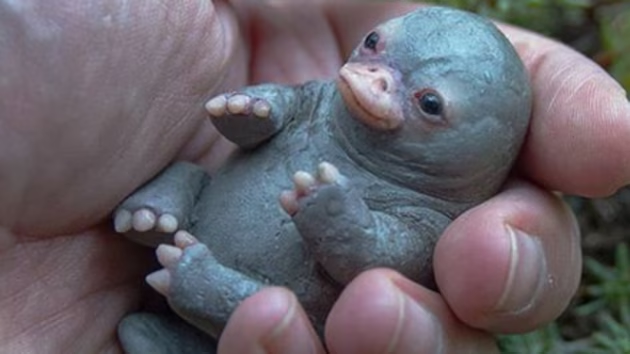
Animal Lovers
Animals have been companions, helpers, and sources of joy to humans for thousands of years. People who feel a deep connection with animals—often called animal lovers—play an essential role in promoting animal welfare, conservation, and compassionate care.
This article explores what it means to be an animal lover, the types of animal lovers, their impact on society, and how anyone can embrace this rewarding lifestyle.
Who Are Animal Lovers?
An animal lover is someone who deeply cares about the wellbeing, rights, and happiness of animals. This affection can span pets like dogs and cats, wild animals, farm animals, and even insects.
Animal lovers often advocate for ethical treatment, rescue, and protection of animals. Their passion can be expressed through volunteer work, activism, education, or simply providing loving homes to pets.
Different Types of Animal Lovers
Animal lovers come in many forms, each with unique motivations and approaches:
- Pet Enthusiasts: Those who adore companion animals such as dogs, cats, birds, and rabbits. They often focus on pet care, training, and adopting from shelters.
- Wildlife Advocates: Individuals passionate about preserving natural habitats and protecting endangered species. They may support organizations like the World Wildlife Fund (WWF).
- Farm Animal Advocates: Concerned with the humane treatment of livestock and promoting sustainable farming. Groups like The Humane Society champion such causes.
- Animal Rights Activists: Focused on fighting cruelty, exploitation, and promoting legal protections for animals.
- Zoologists and Conservationists: Professionals who study animals and work toward their preservation.
Why Are Animal Lovers Important?
Animal lovers contribute significantly to society in various ways:
- Promoting Compassion: Their respect for life fosters empathy and kindness.
- Rescue and Rehabilitation: Many are involved in rescuing abused or abandoned animals.
- Conservation Efforts: Supporters help protect endangered species and restore habitats.
- Educating Others: Animal lovers spread awareness about animal care and environmental stewardship.
- Mental Health Benefits: Caring for animals has been linked to reduced stress and improved emotional wellbeing.
The Emotional Connection Between Humans and Animals
Scientific research shows that interactions with animals release oxytocin, sometimes called the “love hormone,” which strengthens bonding and reduces anxiety. This explains why animal lovers often form deep emotional attachments to their pets or even wild animals they care for.
Pets provide companionship, reduce feelings of loneliness, and can motivate healthier lifestyles. Animal-assisted therapy is a growing field utilizing this bond to aid people with physical or mental health challenges.
How to Embrace the Animal Lover Lifestyle
You don’t need to be a professional to live as an animal lover. Here are some ways anyone can embrace this role:
- Adopt, Don’t Shop: Consider adopting pets from shelters instead of buying from breeders.
- Volunteer: Many shelters, rescue groups, and wildlife organizations welcome help.
- Educate Yourself and Others: Learn about animal needs, ethical treatment, and conservation.
- Practice Kindness: Treat all animals, big or small, with respect and care.
- Support Animal-Friendly Legislation: Advocate for laws that protect animals.
Famous Animal Lovers Who Made a Difference
Many well-known figures have championed animal causes, inspiring others:
- Jane Goodall: Renowned primatologist and conservationist who changed the way we see chimpanzees.
- Temple Grandin: An animal behavior expert who revolutionized livestock handling.
- Leo DiCaprio: Actor and environmentalist supporting wildlife and habitat protection.
- Ellen DeGeneres: Celebrity known for promoting animal adoption and welfare.
Challenges Faced by Animal Lovers
Despite their passion, animal lovers sometimes face challenges:
- Emotional Strain: Rescuing or caring for suffering animals can be heartbreaking.
- Financial Costs: Veterinary care, food, and supplies require resources.
- Public Resistance: Advocating for animal rights may meet opposition or misunderstanding.
- Balancing Priorities: Caring for animals while managing work and family life can be difficult.
Overcoming these challenges requires community support, education, and sometimes professional guidance.
The Impact of Animal Lovers on Society
Animal lovers have transformed societal attitudes towards animals. Their efforts have led to:
- Bans on animal testing and cruelty in many countries.
- Improvements in animal shelter systems and adoption rates.
- Greater awareness of the environmental impact of human activity on wildlife.
- Innovations in veterinary medicine and animal behavior science.
How Technology Helps Animal Lovers
Technology has empowered animal lovers worldwide:
- Social Media: Platforms help spread awareness, share rescue stories, and fundraise.
- Apps: Tools for pet care reminders, adoption searches, and lost pet alerts.
- Wildlife Tracking: GPS and drones monitor endangered species for conservation.
- Online Communities: Forums and groups connect animal lovers globally.
How to Get Involved Locally
If you want to become more involved as an animal lover:
- Visit your local animal shelter and offer to volunteer.
- Attend events like adoption drives or fundraisers.
- Join community groups focused on wildlife or farm animal welfare.
- Support local legislation aimed at improving animal protections.
Conclusion
Animal lovers bring warmth, compassion, and positive change to the world. Their dedication to animals—whether pets, wildlife, or farm animals—creates a more humane and balanced relationship between humans and the animal kingdom.
Anyone can become an animal lover by fostering empathy, learning, and taking action. In doing so, you contribute to a kinder world for all living creatures.





